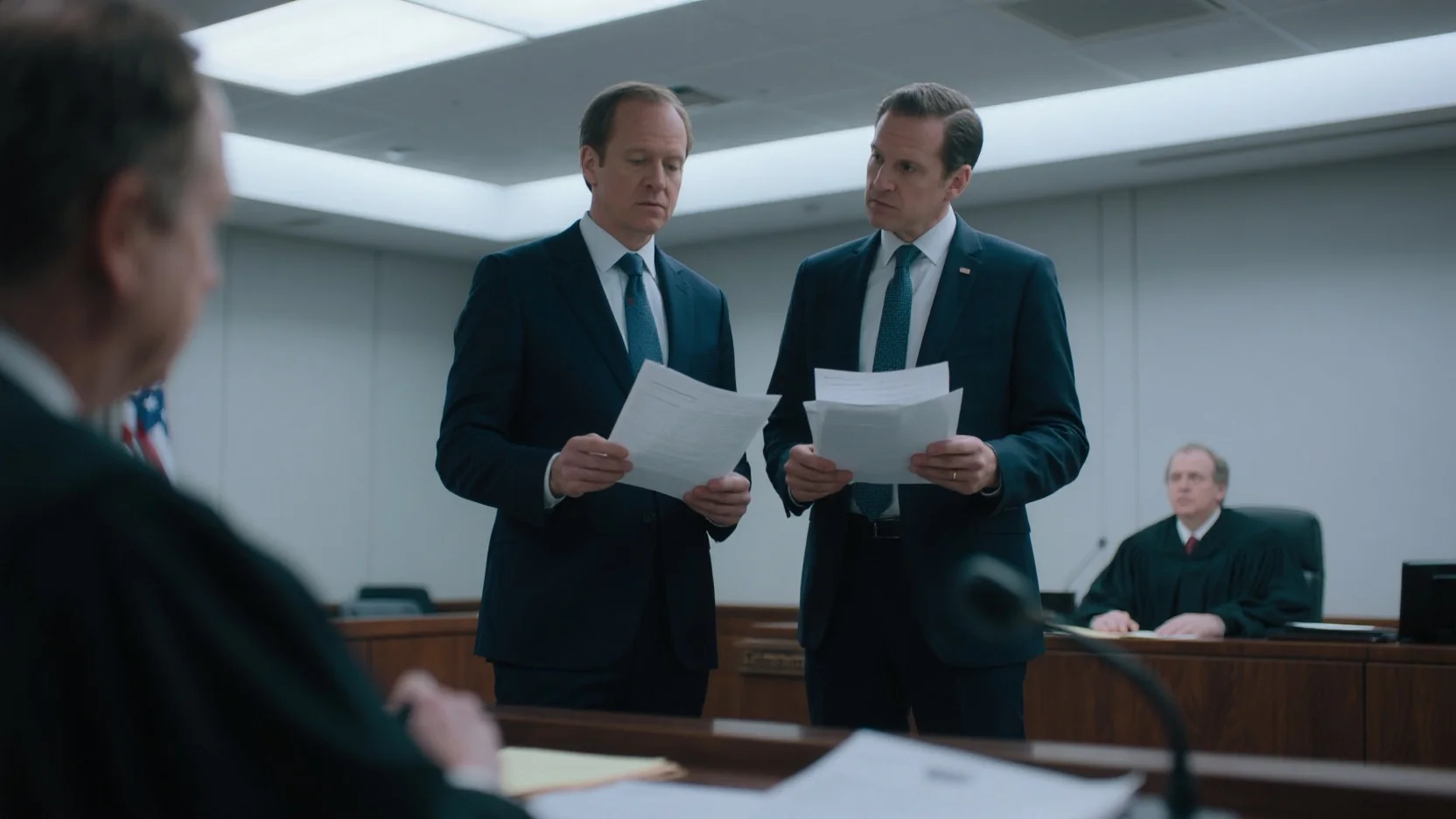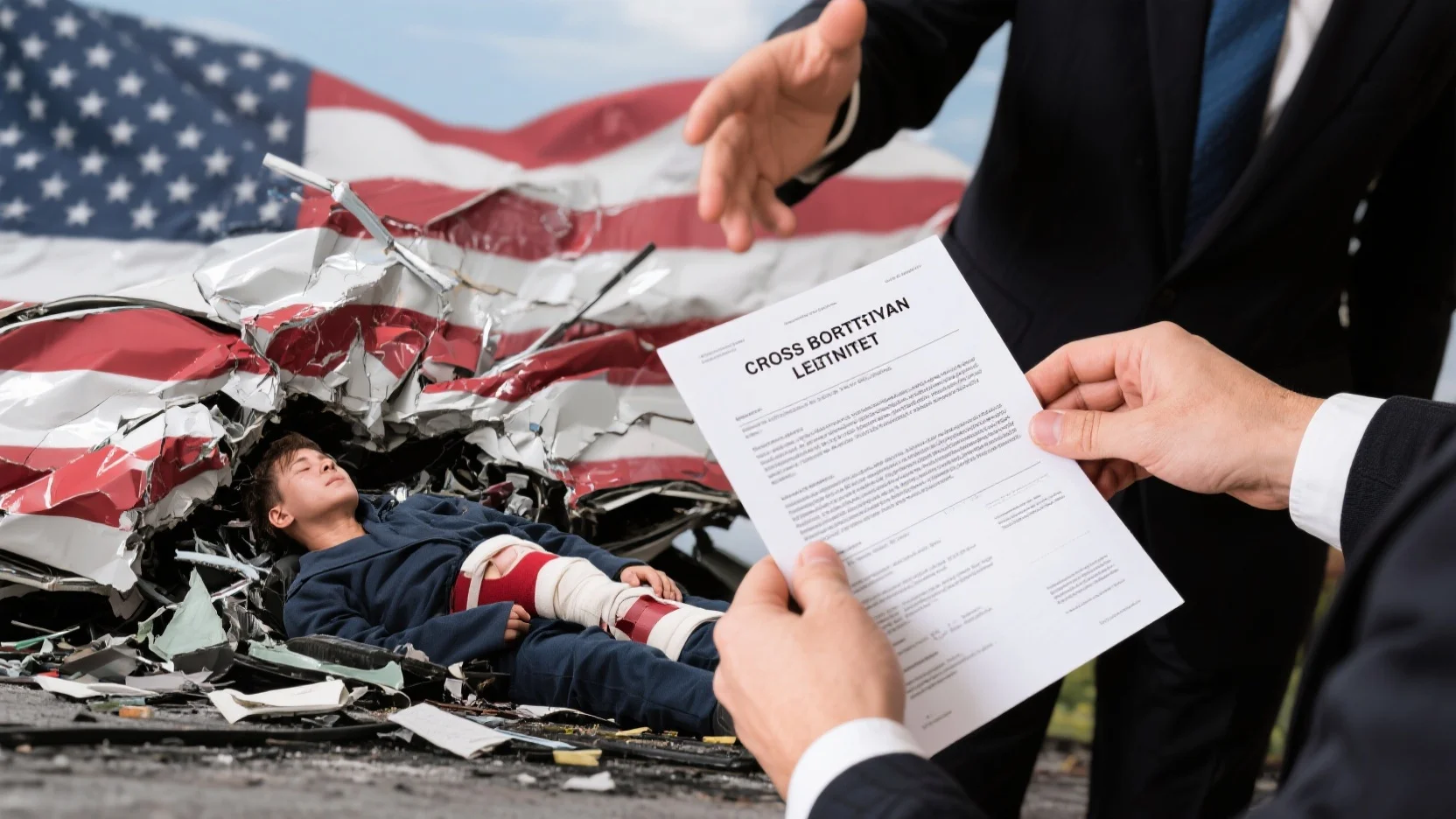
Image Source: unsplash
Cross-border accidents are tricky and need careful handling, especially when exploring legal issues in cross-border accident cases. Victims deal with different laws and insurance rules, which is common between places like the U.S. and Canada. Legal rules complicate claims since systems and customs differ. Without help, drivers may face more costs and delays, which is worse if injuries show up weeks later.
Key Takeaways
- Accidents in different countries have unique laws and rules. Knowing these is important for victims to handle claims well.
- Collecting proof fast is very important. Victims should get police reports, pictures, and witness details soon after the accident to help their case.
- Talking to lawyers who know cross-border laws can help. These experts explain rights and guide victims through tricky legal systems.
Understanding Cross-Border Accident Cases
What Are Cross-Border Accident Cases?
Cross-border accidents happen when someone has an accident in another country. These cases involve dealing with different laws and insurance rules. For example:
- A person may file a claim for injuries from another country.
- Filing claims needs knowledge of court systems, which differ by place.
- Injury laws and insurance rules in Canada and the U.S. are not the same.
In Canada, there are limits on how much you can get for car accident injuries. In Washington State, there are no such limits. People might need to file claims in both countries, making things harder. A lawyer who knows cross-border cases can save time and money.
Problems in Cross-Border Cases
People in cross-border accidents face many problems:
- Understanding different legal systems and rules.
- Handling insurance delays and confusing processes.
- Getting evidence like police reports, photos, and witness details quickly.
Insurance laws vary between countries, which can confuse people. Lawyers help gather proof and make sure claims go smoothly.
How Legal Differences Affect Cross-Border Cases
Legal differences change how cross-border cases work. Injury laws, payment limits, and insurance rules vary by country. For instance, Canada limits payments for injuries, but U.S. states have different rules. Claimants must learn the laws in both places.
Sometimes, countries’ laws conflict, causing arguments about where to file claims. The accident’s location and people involved decide this. Legal experts help people handle these tricky situations.
Exploring Legal Issues in Cross-Border Accident Cases
Jurisdictional Disputes and Filing Claims
Jurisdictional disputes make cross-border accident cases harder to solve. The court in charge depends on where the accident happened. It also depends on who is involved. But figuring this out is not always easy.
Deciding jurisdiction in cross-border truck accidents can be tricky. Countries and states have different laws about legal responsibility. The accident’s location might decide the court, but it’s not simple. These disputes can change how a claim turns out.
Filing claims in the right court is very important. Mistakes can slow things down or cancel the claim. Lawyers help victims file claims in the correct place.
Differences in Personal Injury Laws and Compensation
Personal injury laws are not the same everywhere. These differences affect how much money victims can get. Key points include:
- The court location decides which laws and damages apply.
- Deadlines for filing claims are different in each place.
- In the US, juries decide cases, but judges do in the UK.
Washington State has no limit on damages, so payouts can be higher. Canada limits pain and suffering damages to about $400,000. Knowing local laws is key to getting fair compensation.
Insurance Policy Differences Across Borders
Insurance rules change from country to country. In British Columbia, claims go through ICBC, a government-run group. In Washington, victims sue the driver at fault. British Columbia lets victims recover legal costs, but Washington does not. These differences affect how claims are handled and their results.
Legal Costs and Financial Impacts
Legal costs in cross-border cases vary a lot. In Washington, victims cannot get back legal costs. In British Columbia, they can recover these costs. Insurance systems also affect money matters. ICBC is public, but US insurers aim for profit. Knowing these differences helps manage costs better.
Navigating Cross-Border Accident Complexities

Image Source: unsplash
Collecting and Keeping Evidence
Having the right evidence is very important. Victims should gather police reports, photos, and witness details right away. These items are the base for any legal claim. They should also keep medical records and receipts for accident-related costs. Staying organized helps victims show a strong case to insurance companies or courts.
Talking to Insurance Companies and Authorities
Talking to insurance companies and officials in cross-border cases can be hard. Victims might face:
- Different rules for notifying people in other countries.
- Translating legal papers into another language.
- Sending documents to foreign government offices.
Understanding the legal systems is very important. Victims must find all responsible parties and send notices correctly. Mistakes in communication can slow claims or cause bad results.
Getting Help from Cross-Border Legal Experts
Cross-border lawyers are very helpful in solving tough problems. They know how different legal systems work and guide clients through claims. They work with local experts like translators and foreign lawyers. This teamwork helps handle cultural and legal differences. Their advice helps clients avoid errors and get better results.
Learning About International Laws and Agreements
International laws and agreements affect cross-border accident cases a lot. These rules decide how claims are handled and which laws apply. For example, agreements may set rules for accepting foreign court decisions. Knowing these rules is key to understanding the legal process. Lawyers who know international law can help victims use these agreements in their cases.
Cross-border accident cases are tricky and need special attention. Challenges include:
- Figuring out which court has authority.
- Getting evidence from people in other places.
- Finding everyone responsible for the accident.
Planning and expert help are very important. Lawyers can:
- Solve confusing insurance problems.
- Gather the right evidence quickly.
- Create plans to get fair payments.
Talking to skilled lawyers helps victims protect their rights and get fair results.
FAQ
What should someone do right after a cross-border accident?
Victims need to gather proof like photos and police reports. They should also talk to witnesses and get their details. Informing their insurance company and seeing a doctor is important too.
Can someone make claims in both countries involved?
Yes, but it depends on the rules and situation. Talking to a cross-border lawyer helps file claims correctly and follow the laws.
How long does it take to settle a cross-border accident case?
The time depends on the rules, proof, and legal issues. Some cases finish in months, but others take years to solve.


